Europe’s Left continues to learn the hard way what the ALP finally understood under Rudd and Gillard – that voters don’t like open borders or being told that if they object to radical changes to their society they’re racist.
While Europe’s left-liberal establishment is occasionally panicked into enforcing EU borders – as after 1.3 million asylum-seekers arrived in 2015-16, thanks to Angela Merkel – its default is to virtue-signal that it wants ‘bridges not walls’. So it was that last year the EU ‘border protection agency’ Frontex sent vessels to ‘help’ Greece deal with a new wave of illegal immigrants flooding in from Turkey. The EU’s idea of ‘helping’ Greece was to escort people-smugglers’ boats into Greek ports.
The Euro-elites have breathed sighs of relief over the past year as the EU’s two power-houses, Germany and France, have remained under politically correct management. In Germany, Merkel’s government was replaced by an essentially identical Social-Democrat-Greens-dominated coalition. And in France the anti-immigration Marine Le Pen once more failed to convert massive support into defeating Emmanuel Macron – who got lucky again thanks to Le Pen’s stupid refusal to condemn Putin while his atrocities in Ukraine received massive publicity.
But elections at two ends of Europe are now set to upset the cosy Brussels consensus. Firstly Sweden’s long-dominant Social Democrats have been turfed out. While energy security was a major concern for voters – the Right’s commitment to reverse the Left’s decommissioning of Sweden’s nuclear power stations in recent years resonated strongly – it was the government’s catastrophic mismanagement of immigration that became the top political issue at the 11 September election. Now four conservative parties are set to govern, probably in informal coalition. It is likely that this new government will stop approving asylum claims.
The Right’s victory is due primarily to the soaring popularity of the Sweden Democrats – the only party to have strongly criticised mass immigration – which won 20 per cent of the vote, compared to 5.7 per cent in 2010. The reasons for the party’s rise aren’t hard to discern. During Europe’s 2015-16 migration crisis, Sweden accepted more than 190,000 asylum seekers, 2 per cent of its population, by far the highest proportion in Europe. Not only have there been big questions about whether many asylum-seekers’ claims were bogus – 79 per cent of refugees in Sweden return to their home countries for holidays – the huge increase in immigration has been accompanied by an equivalent rise in violent crime fueled by ethnic gangs. Sweden is the only European country where fatal shootings have risen significantly since 2000, leaping from one of the lowest rates of gun violence to the highest in less than a decade. There has also been an epidemic of bombings – 500 in the past four years – with no equivalent anywhere else in the West. Police say there are now over 60 immigrant neighbourhoods where they have little control.
The story of leftist incompetence over immigration is similar in Italy, which goes to the polls on 25 September. Polls show that the right-wing bloc of Giorgia Meloni’s Brothers of Italy, Matteo Salvini’s Lega and Silvio Berlusconi’s Forza Italia should comfortably defeat the government led by the centre-left Democratic party since 2019. Like the Sweden Democrats, Meloni’s party has shot out of nowhere to become Italy’s most popular right-wing party – in 2018 it had 4.3 per cent support and now has 25 per cent.
As the leader of the largest party, Meloni would be prime minister (and Italy’s first-ever woman leader). Salvini would probably again be deputy prime minister and interior minister, as he was in the right-wing coalition government he dominated in 2018-19. In that role he displayed an impressive Tony Abbott-like ability to stop the boats, virtually putting an end to the people-smuggling trade which had brought 620,000 illegal immigrants from Africa from 2014 to 2017. He’ll probably do so again.
Salvini proved a capable minister but a chaotic, volatile politician. Ineptly trying to make himself prime minister in 2019, he managed single-handedly to bring down the government, allowing the Democratic party to return to power – and to restart the boats. He then oddly joined the Democratic party-led coalition government. Meloni and Salvini have a tetchy relationship, probably exacerbated by her spectacularly eclipsing him as the star of the Italian Right. There’s little optimism that the coalition government that looks set to take over will be smooth sailing.
As I wrote in these pages earlier this month, Britain under Liz Truss also looks set for a rightward shift from the Labour-lite-Green Johnson regime. Truss promises ‘I will govern as a conservative’ and there are promising signs she’ll be good to her word: she’s suspended green levies from energy bills and is giving priority to energy security over climate change, with a go-ahead to fracking and new North Sea oil and gas projects. Jacob Rees-Mogg, who outraged the climate lobby in April by saying he wanted ‘every last drop’ of oil and gas from the North Sea, has been appointed the cabinet minister responsible for energy. And new Home Secretary Suella Braverman is more likely to be effective in stopping the boats than her hapless predecessor Priti Patel.
Yet the jury’s still out on whether Truss will lead decisive change or whether Britain’s woke establishment will succeed in wresting back control. It was surprising that the most refreshingly anti-woke of the candidates to replace Johnson, Kemi Badenoch, was given international trade rather than a portfolio where she could have waged culture wars against the left-liberal blob, such as education or the arts. Another mystery is why arch-Johnson and net zero critic David Frost was left out of Truss’s lineup.
A big test for Truss will be whether she can keep her nerve pursuing policies to which the King is hostile. People who know Charles are sceptical that he’ll now steer clear of politically controversial issues, especially in relation to climate change. Will she stick to her guns, telling him in her weekly audiences that she’s proceeding with, say, the Rwanda offshore asylum-seekers processing plan (which he’s described as ‘appalling’), or new fossil fuel projects, whatever their implications for net zero 2050? We’ll soon find out whether, like Thatcher, the lady’s not for turning.
Got something to add? Join the discussion and comment below.
Get 10 issues for just $10
Subscribe to The Spectator Australia today for the next 10 magazine issues, plus full online access, for just $10.
Mark Higgie is on Twitter at @markhiggie1
You might disagree with half of it, but you’ll enjoy reading all of it. Try your first month for free, then just $2 a week for the remainder of your first year.

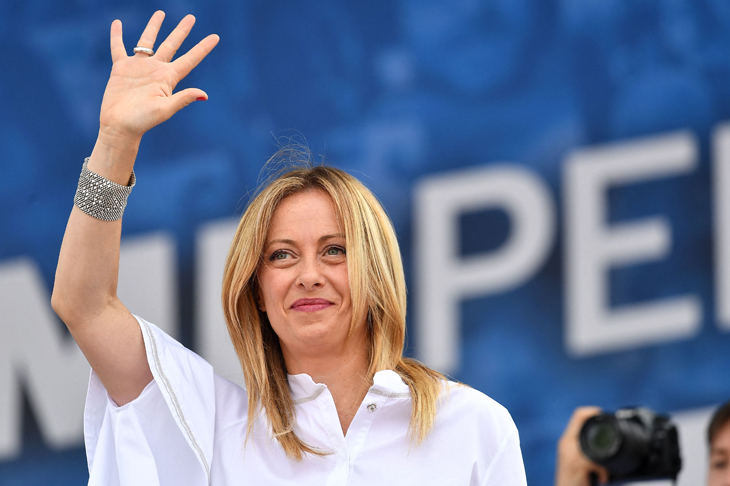
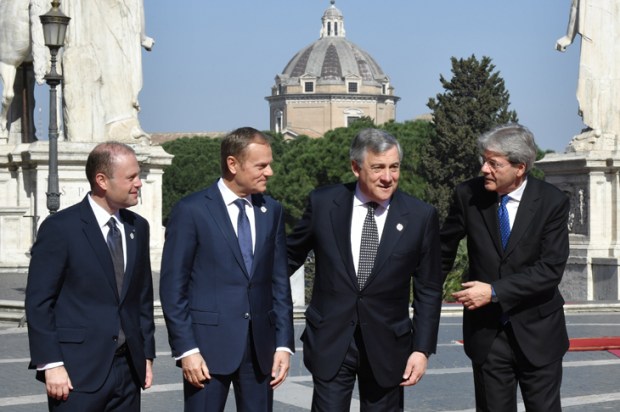
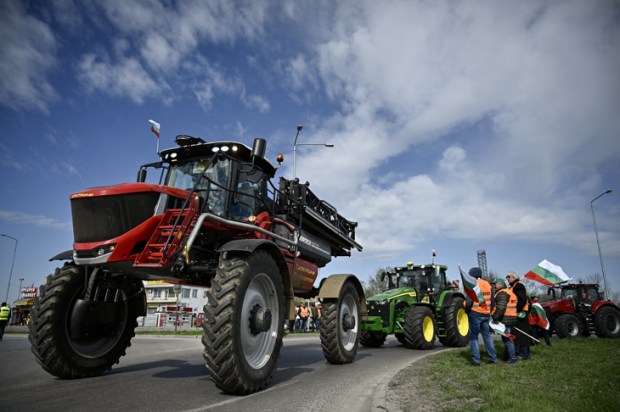
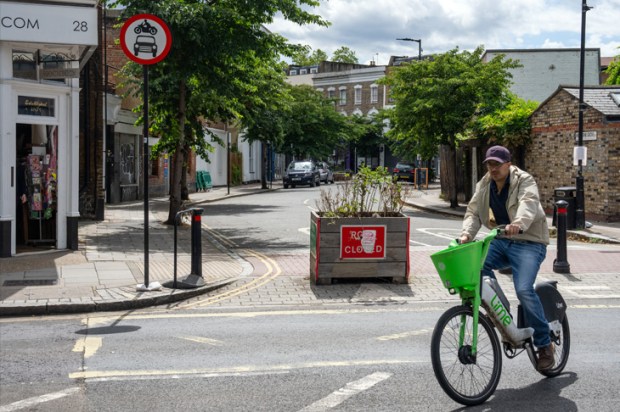
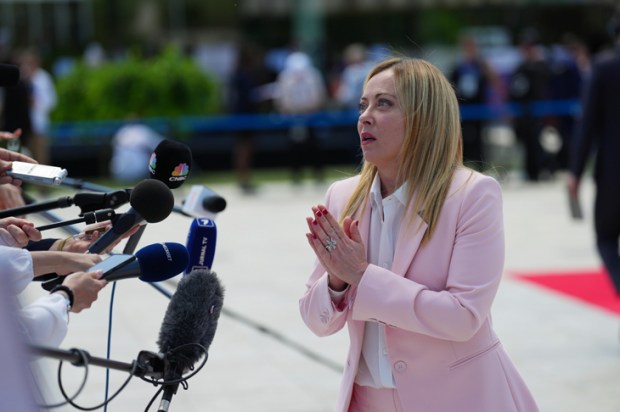








Comments
Don't miss out
Join the conversation with other Spectator Australia readers. Subscribe to leave a comment.
SUBSCRIBEAlready a subscriber? Log in